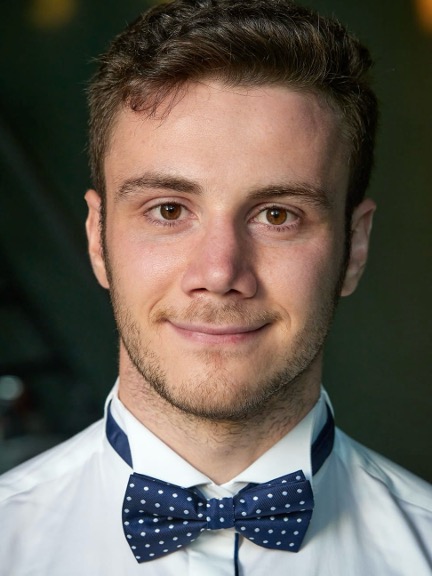Hüseyin Emre Ceyhun – Ph.D. Candidate in Political Science, Princeton University | Researcher at the Princeton University Center for Statistics and Artificial Intelligence | Researcher at the Center for International Security Studies
Quick Bio
- Bachelor’s Degree: Boğaziçi University, Business Administration, 2018

- Double Major (if any): Political Science and International Relations
- Master’s Degree: Economics, Sabancı University, 2020
- During Undergraduate Studies: George Washington University, USA
- Location: Princeton, New Jersey, USA
What does your current job involve? What’s a typical day like?
I spend most of my time conducting research for my dissertation. In my research, I use artificial intelligence and econometric models to examine how technological developments affect politics. In my doctoral thesis, I am researching how political elites' access to new communication technologies has transformed intra-party dynamics within political parties. I also teach undergraduate and graduate courses at Princeton University.
How did your Economics education at SU support your transition into work life?
Economics MA program provided me with a unique opportunity to learn the fundamentals of statistics and quantitative methods. In my ongoing research at Princeton, I have always felt the benefits of the knowledge I gained in the master's program in economics.
How has your journey developed? Did you start this career path right after your graduation?
Right after my graduation from the masters’ program, I started my PHD at Princeton.
How has your research experience at SU influenced your work today?
The research I conducted at Sabancı University enabled me to approach the social sciences research that interested me from a more analytical and scientifically sound perspective. After graduating, I had the opportunity to use the econometric models I learned at Sabancı in many research projects.
What was your favorite course in the Economics program, and why?
I think my favorite class was Advanced Econometrics taught by Professor Abdurrahman Aydemir at Sabancı University. He showed us how the econometric models we learned were applied in research.
What advice would you give to current undergraduates?
First, I would say enjoy it. But if I have to be didactic, I would say the following:
Economics is not just theory; it also offers a perspective that transforms your view of the world. Therefore, students need to go beyond their classes and read constantly and closely follow global developments. While current trends like artificial intelligence and cryptocurrencies are transforming the world, it is far more important for students to approach all topics with a critical eye and adopt a questioning attitude.
Economics is such a broad field that you can only discover what suits you best by experiencing its various subfields. Therefore, students must explore various topics, gain different experiences, and not limit themselves.
In addition to all this, a solid foundation in mathematics and statistics is essential. The stronger your analytical skills, the more advantageous your position in economics will be.
Finally, curiosity and questioning are the cornerstones of being an economist. Never stop asking “Why?” Don't settle for the answers you receive; instead, think more deeply, and this will always keep you one step ahead.
How did your background in Economics help you stand out in job interviews?
I did not participate in any job interviews before the doctoral program, but my economics education had a positive impact on my admission into the PHD program. This is because political science has also begun to examine events using tools used in economics over the past 20 years. For this reason, I can say that my economics education was useful in my transition to political science.
What would you say to a student who’s considering Economics but still unsure?
It is quite natural for young people aged 18-19 to find it difficult to decide what to study. At this point, economics can offer a great opportunity for indecisive young people because the field encompasses many different disciplines. I also find a bachelor's degree in economics to be quite valuable in terms of providing an analytical perspective on world events, beyond specializing in a specific field.
Has your relationship continued with the SU Professors after graduation?
Since I moved to the United States, it has been more difficult to communicate with my professors. However, two years ago, I had the opportunity to come to Sabancı to present my research. At that time, I met with my professors.